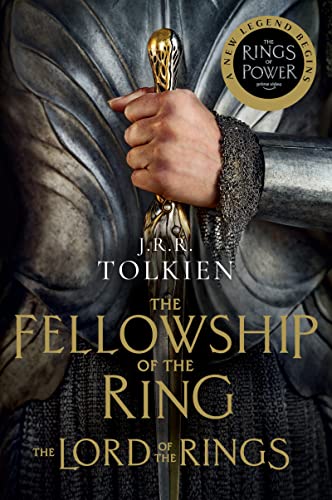"The Lord of the Rings"
"The Lord of the Rings" by J.R.R. Tolkien, published in three volumes between 1954 and 1955, is one of the most famous and influential works of fantasy literature in the 20th century. It is often credited with reviving interest in the fantasy genre and setting the standard for its modern form. The narrative is a continuation of Tolkien's earlier work, "The Hobbit," and is set in the fictional world of Middle-earth.
The story centers on the quest to destroy the One Ring, which was forged by the dark lord Sauron to control other rings of power and dominate Middle-earth. The ring has the ability to corrupt its bearers, and Sauron seeks it to regain his full power after being defeated in an earlier age. The protagonist, Frodo Baggins, a hobbit from the Shire, inherits the ring from his cousin Bilbo and is charged with the daunting task of destroying it by casting it into the fires of Mount Doom, where it was originally forged.
Frodo is joined by a group of companions: his fellow hobbits Samwise Gamgee, Peregrin Took, and Meriadoc Brandybuck; Gandalf the wizard; Aragorn, the heir to the throne of the kingdom of men; Legolas, an elven prince; Gimli, a dwarf; and Boromir, a man from the kingdom of Gondor. This group, known as the Fellowship of the Ring, faces numerous challenges, including battles with mythic beasts, confrontations with enemy armies, and the internal threat posed by the ring's corrupting power.
"The Lord of the Rings" is notable for its detailed world-building, including elaborate histories, languages, and cultures that lend a sense of depth and reality to the story. Tolkien, a professor of Anglo-Saxon and an expert in language, drew upon numerous mythological, literary, and linguistic sources to enrich his narrative, making it a work of great complexity and depth.
Themes of friendship, sacrifice, and the battle between good and evil are central to the narrative. The epic explores the nature of power through the lens of the ring, which symbolizes the temptation of absolute power and its potential to corrupt absolutely. The story also delves into themes of heroism, as characters from humble backgrounds rise to great deeds and leadership, highlighting Tolkien's belief in the capacity of even the smallest and most seemingly insignificant beings to influence the course of history.
"The Lord of the Rings" has had a profound impact on literature, inspiring countless works of fantasy and spawning adaptations in film, art, music, and theater. Its exploration of fundamental human themes through the lens of fantasy continues to resonate with audiences around the world, making it a timeless classic.

Комментарии
Отправить комментарий